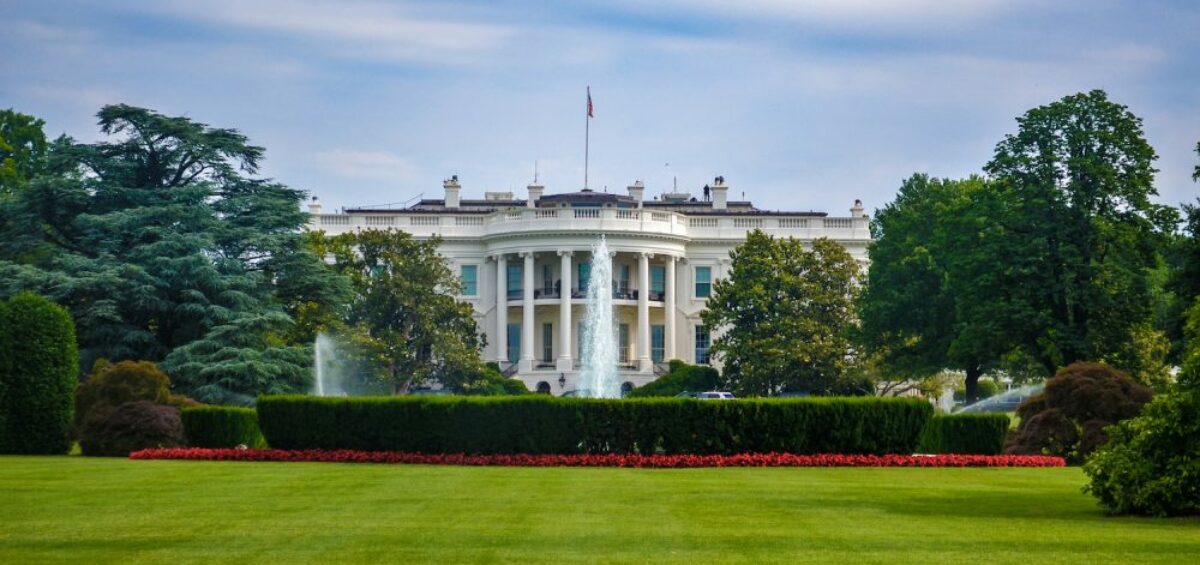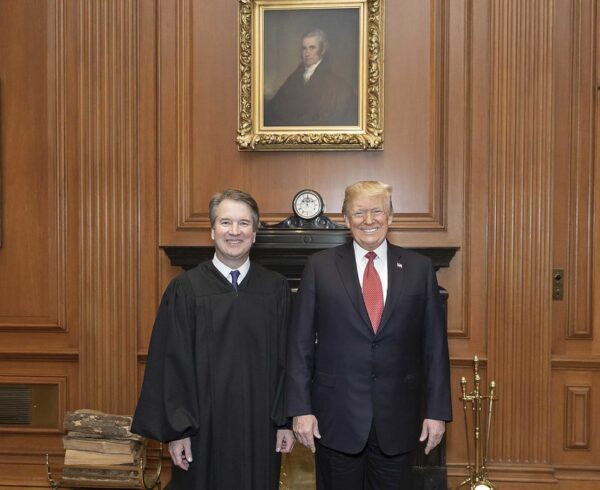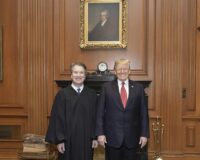A dictionary definition of prescience is: The fact of knowing something before it takes place; foreknowledge.
I previously wrote about the remarkable prescience of Ms. Louise Owen, who taught senior level government classes at LaGrange (GA) High School. By the time I came to her stimulating classroom in 1956, I had already become politically aware. Conservative economic and liberal social positions attracted me even then.
A Vicious Stalemate
I pronounced a not-too original observation during one class discussion: The Democratic conservative and Republican liberal wings had many similarities, while the centers of both parties presented almost identical positions. The major differences occurred in the extremely liberal Democrats versus the extremely conservative Republicans. I advocated realigning the Democratic and Republican parties to Liberal and Conservative, thereby ending the confusion in the system.
Ms. Owen countered that the dependability of our national political system rested on the centers of each party providing stability, thereby keeping extremists out of real power. She observed that, if a political realignment were to take place, we would want Liberal, Conservative, and Centrist parties. She said that two major national parties— conservative versus liberal without a strong centrist party—would produce a vicious stalemate under which the business of the government by the people and for the people would be almost impossible to conduct in a rational manner. We need only look to our current political milieu to see how remarkably prescient Ms. Owen was in 1956.
Equilibrium?
We may argue that the United States electorate is right of center and here-to-fore always has come back to that equilibrium when elections and resultant administrations pushed the country further to the right or to the left. A long time may be required to reestablish the center-right equilibrium. I am well aware that many of my brothers and sisters—both liberal and conservative—insist centrist politics reflect the adage that only yellow lines and roadkill occupy the center. That is, compromise must be eschewed in favor of rigidly partisan politics. We saw the futility of this approach during much of the eight years of President Barack Obama’s administration: I can think of only one major piece of legislation that passed as a result of compromise between the two parties—the financial sequester that led to the unfortunate, and possibly disastrous, hollowing-out of our armed forces.
In my original post mentioned above, I wrote in anticipation of the 2016 elections: “Our job as enlightened Christian citizens and voters will be to sift through the campaign rhetoric and catch phrases to determine which party can best lead this country in these perilous times. We need to ensure that the center is reestablished and holds against both Democratic and Republican extremists, if we want this great country to remain functional and avoid the dysfunction of irrational partisan politics.”
We may, therefore, ask: Did the 2016 elections reestablish the political center, specifically the right of center generally typical of the Republican Party, the victor in the national and most state contests? I suggest a resounding “NO,” because the country remains, for the time being, resolutely and, perhaps irrevocably, split along partisan lines.
We now have Sen. Charles Schummer, (D-NY, the current Senate Minority Leader) espousing the same resistance strategy to President Donald Trump and the GOP majority as did Sen. Mitch McConnell (R-KY, currently the Senate Majority Leader) when he was the Senate Minority Leader during Obama’s eight years as president: complete opposition to any legislation and nominations proposed by the party in the majority. Thus, the cycle of what appears to be implacable polarization continues to the detriment of the United States. In large part, this polarization results from the way the Democratic and Republican parties engage in identity politics to mobilize their so-called bases.
Identity Politics
Identity Politics, which first appeared in political discourse in the 1970s, refers to the tendency for people of a particular religion, race, social background, etc. to form exclusive political alliances, thereby moving away from traditional broad-based politics. Prior to the 2016 elections, most people probably associated Identity Politics primarily with the Democratic Party’s recruitment of several distinct groups, e.g., African-American men and women, ethnic minorities, sexual minorities, etc. A significant critique of Democratic Identity Politics results from what many people considered the exclusion of white citizens in middle- and lower-socioeconomic classes, particularly in the South and MidWest. President Trump, of course, used his brand of Identity Politics to recruit these excluded white citizens, unfortunately once referred to as “deplorables,” into the Republican Party and won victory in the 2016 elections.
Potential voters in the center have been excluded from the main thrusts of each major party as a result of Identity Politics. The centers of the Democratic and Republican parties no longer provide political stability and, as all too typical with the Obama and Trump administrations, extremists on the left and right accrued too much real power: Accordingly, Ms. Owen’s prediction has become political reality.
A Way Forward?
How do we reestablish the political center to be the main force of our national politics? My preference would be to form a new party encompassing the centers of both the Democratic and Republican parties. Formation of a viable third party would be extremely difficult, unless voters at the center of each current party declare themselves fed up with the existing circumstances and move away from Identity Politics. At present, I do not see a national political leader who has the gravitas and broad respect necessary to lead this movement, not as a populist or “savior on a white horse,” but as a leader who appeals to the vast majority of centrists.
Leaving aside formation of a centrist third party, we should nevertheless resist the temptation to participate in, much less advocate, Identity Politics. A first step would be for my liberal/progressive brothers and sisters to accept the outcome of the 2016 elections: President Trump was elected under the extant rules of the Constitution, his loss of the popular vote notwithstanding. I, by no means, suggest persons in the loyal opposition to President Trump and to the present iteration of the Republican Party should cease from legitimate opposition. Loyal opposition does not include unrelenting assaults on the president’s personality, i.e., ad hominem attacks on the person rather than his policies. Similarly, my conservative brothers and sisters should eschew ad hominem attacks against members of the Democratic Party. Neither Democrats nor Republicans ordinarily qualify for demonization. Refraining from ad hominem attacks from both political directions could set the stage for the beginning of cooperation on issues important to the nation as a whole—health care, national defense, combating Radical Islamic terrorism, rationalization of our taxation system, and renewal of our infrastructure. Yes, such cooperation would require some degree of compromise from both parties.
I hope reestablish of the political center in our politics can be effected in the absence of a major war, dramatic economic decline, or other catastrophes. If we cannot reestablish the political center as the primary thrust of our politics, we easily could devolve into anarchy, as exemplified by the violent tenor of many recent street protests and also by the tendency of misplaced political correctness that impinges upon legitimate freedom of speech guaranteed under our Constitution. In perilous times like the present, we must adhere to, and rely upon, the Constitution.











Dad, Perhaps if he did things that suggested that he had any sense of the overall well being for our country, its citizens, the planet, then people would be able to accept him. Also, the very likely reality that his presidency arose because of outside interference is a very good reason to resist this outcome and to resist at every turn the acts that he is engaged in as president. This is not an ad hominenem. I am not attacking him personally, though there is plenty to attack. His actions, legislative proposals, executive orders display nothing that any person concerned with justice and equity for all should accept, regardless of where they find themselves on the political spectrum.
I think calling for acceptance is tantamount to appeasement.